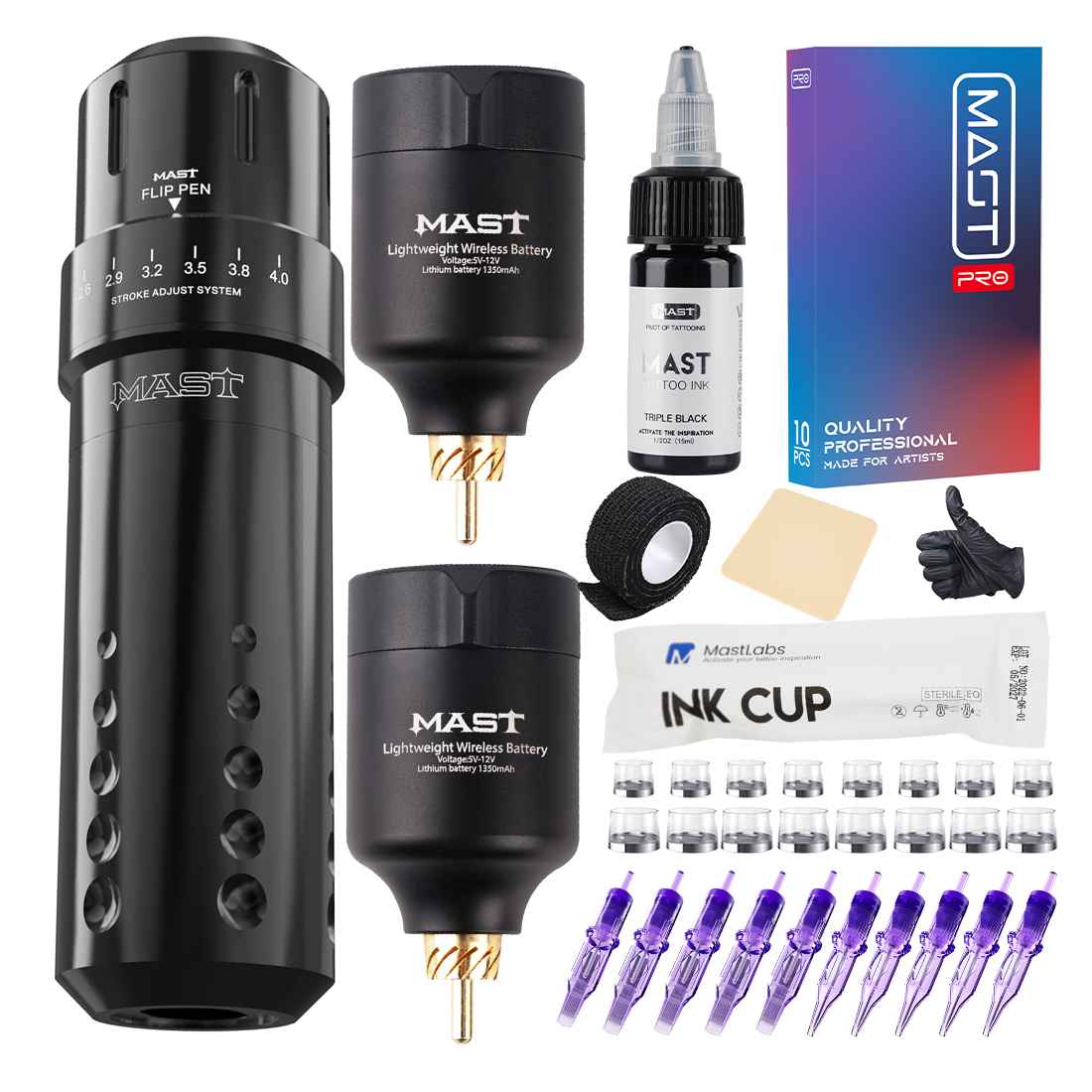Tattoos have become increasingly popular in recent years, with many people embracing this form of body art as a means of self-expression.
As tattoos gain mainstream acceptance, it’s natural for individuals considering getting a tattoo to have questions and concerns about the process.
One common question that arises is, “Do You Lose Blood During a Tattoo?”
In this article, we will explore the intricacies of tattooing and shed light on the topic of blood loss during the tattooing process.
The Role of Needles in Tattooing
Needles play a crucial role in the tattooing process. They are responsible for delivering ink into the skin, creating the desired design.
Tattoo needles consist of several tiny needles grouped together, forming a configuration called a needle cluster or needle bar.
These needle clusters are attached to a tattoo machine, which drives the needles up and down at a rapid pace, puncturing the skin.
Also Read: Is it safe to get a tattoo if I have a medical condition?
Tattooing and the Epidermis
To understand whether blood loss occurs during a tattoo, it’s essential to explore the skin layers involved.
The skin is composed of three primary layers: the epidermis, the dermis, and the hypodermis.
The epidermis is the outermost layer, providing a protective barrier for the underlying tissues.
When a tattoo is applied, the ink is injected into the dermis, the layer beneath the epidermis.
The dermis is a thicker layer that houses blood vessels, nerves, and sweat glands.
Does Tattooing Cause Bleeding?
During the tattooing process, it is not uncommon for minor bleeding to occur.
The repeated puncturing of the skin with the tattoo needle can cause small blood vessels to rupture, resulting in localized bleeding.
However, it’s important to note that the amount of blood lost during a tattoo is typically minimal.
Factors such as the location of the tattoo, the size of the design, and individual variations can influence the extent of bleeding.
Managing Bleeding During Tattooing
Experienced tattoo artists are skilled in managing bleeding during the tattooing process.
They take various precautions to control bleeding, such as wiping away excess blood, applying pressure to the tattooed area, or using medical-grade adhesive bandages to absorb any oozing blood.
Additionally, reputable tattoo studios prioritize hygiene and maintain sterile conditions, reducing the risk of infection and promoting safe healing.
Also Read: Can a tattoo needle hit a nerve?
Tattoo-Related Blood Loss
While minor bleeding can occur during a tattoo, significant blood loss is rare. The puncturing of small blood vessels usually results in only a few drops of blood.
The body’s natural clotting mechanism quickly works to stop bleeding, and the tattoo artist’s techniques help minimize blood flow.
It is essential to understand that tattooing is not a highly invasive procedure like surgery, where significant blood loss is anticipated.
Also Read: Can a Tattoo Needle Hit Bone?
Health and Safety Considerations
When considering getting a tattoo, it is crucial to choose a professional and licensed tattoo artist.
Reputable tattoo studios adhere to strict health and safety guidelines, ensuring a safe and hygienic environment for their clients.
Professional tattoo artists use sterilized equipment, disposable needles, and high-quality inks to minimize the risk of complications and infections.
Potential Risks and Precautions
Although the risk of complications from getting a tattoo is generally low, it is important to be aware of potential risks.
Infections, allergic reactions to tattoo ink, and skin irritations are among the risks associated with tattoos.
To minimize these risks, it is advisable to consult with a reputable tattoo artist and discuss any concerns or preexisting medical conditions.
Additionally, seeking advice from a healthcare professional can provide further guidance and address individual concerns.
Also Read: What Happens if a Tattoo Needle Goes Too Deep?
Conclusion
This wraps it up on the question, “Do You Lose Blood During a Tattoo?”
In conclusion, while minor bleeding can occur during the tattooing process, the amount of blood lost is typically minimal.
Tattooing involves the injection of ink into the dermis layer of the skin, which may cause small blood vessels to rupture temporarily.
However, professional tattoo artists employ techniques to manage bleeding, and significant blood loss is uncommon.
When choosing to get a tattoo, it is essential to select a reputable artist and prioritize proper aftercare to ensure a safe and successful tattooing experience.
FAQs
Are there any health risks associated with tattooing?
While the risk of complications is generally low, infections, allergic reactions, and skin irritations are potential risks associated with tattoos.
Choosing a professional tattoo artist and following proper aftercare instructions can help minimize these risks.
Can tattoos lead to infections?
If proper hygiene and aftercare practices are not followed, tattoos can increase the risk of infection.
It is crucial to keep the tattooed area clean, apply recommended ointments, and avoid exposing it to dirty environments during the healing process.
How long does the healing process take after getting a tattoo?
The healing process after getting a tattoo can vary depending on the individual and the size and location of the tattoo.
Generally, it takes around two to four weeks for the outer layers of the skin to heal, but complete healing may take several months.
Can excessive bleeding occur during tattoo removal?
Tattoo removal procedures, such as laser removal, can cause more significant bleeding compared to getting a tattoo.
However, medical professionals performing these procedures take precautions to manage bleeding and ensure patient safety.
Is it normal to experience redness and swelling after getting a tattoo?
Yes, redness and swelling are common immediate reactions after getting a tattoo.
The body’s immune response to the tattooing process can cause temporary inflammation.
However, if redness and swelling persist or are accompanied by severe pain or discharge, it is advisable to consult a healthcare professional.






